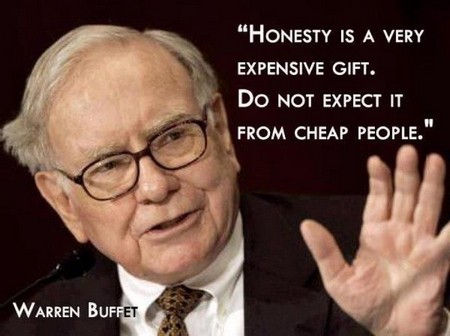What Will Set Warren Buffett s Company Apart When He s Gone MoneyBeat
Post on: 16 Март, 2015 No Comment

Warren Buffett
Warren Buffett likes companies that have wide “moats” – his term for competitive advantages – and has built Berkshire Hathaway Inc. into a gigantic conglomerate by buying or investing in companies protected by moats.
But what is Berkshire’s moat? That’s a question Lawrence Cunningham asks in his new book, “Berkshire Beyond Buffett: The Enduring Value of Values,” in which he addresses a question perennially on Berkshire shareholders’ minds: Will the company that Warren Buffett built survive without him?
Mr. Cunningham, a law professor at George Washington University, writes that Berkshire will survive beyond Buffett because it has “distinct features and a strong corporate culture” across its 70-odd operating subsidiaries. Berkshire’s moat, he argues, is its corporate culture.
Mr. Cunningham finds that Berkshire companies – whether a candy maker, a manufacturer of carpets or a seller of complex reinsurance products – share certain traits despite their different business models and industries. He identifies nine traits, which he says start out as intangible values but end up being transformed into economic value for Berkshire’s subsidiaries.
Values such as integrity, operational autonomy and long-term ownership are etched into the very DNA of the conglomerate Mr. Buffett and his partner Charlie Munger have built over half a century. These values in turn allow Berkshire to drive a better deal and attract top talent.
The nine traits are explored in separate chapters that also serve as mini-profiles of the various Berkshire subsidiaries. Under the trait “Budget-conscious and Earnest,” the author explores Berkshire’s insurance companies including Geico, the country’s third-largest auto insurer known for its heavy advertising and lower-priced offerings .
A chapter titled “Reputation” charts the history of Clayton Homes, a pre-fab housing maker that Mr. Cunningham says benefitted financially during the recession because of its prudent lending practices. Another company, Jordan’s Furniture, thrives because of its commitment to the Massachusetts community where it operates. He focuses on the woes at paint company Benjamin Moore, which has seen CEO turnovers in recent years, and its efforts to get back on track.
“Kinship” looks at how Mr. Buffett has successfully bought and managed family-operated businesses such as Nebraska’s Furniture Mart, even helping with generational transitions. A chapter on “Self-Starters” talks about the entrepreneurial quality of many Berkshire managers, who created new markets for their products – from private aviation pioneer NetJets to cowboy boot-maker Justin Boots – before they caught Mr. Buffett’s eye.
In the chapter “Hands Off,” Mr. Cunningham says that Mr. Buffett’s famous laissez-faire approach to management was “made by choice but became necessary by default” given the large number of subsidiaries. The decentralized approach favored by Mr. Buffett has been replicated across the Berkshire family, empowering managers to make their own decisions.
More In Warren Buffett
One of the few times that Mr. Buffett has tried to be involved, things haven’t gone well. The author describes a costly venture by Geico into the credit card business, made at Mr. Buffett’s behest and against the wishes of Geico’s management. Geico eventually lost $6 million and took another hit when it sold the portfolio at a discount to face value.
Chapters titled “Investor Savvy,” “Rudimentary” and “Eternal” detail other aspects of Berkshire’s corporate culture. And you guessed it, the nine traits he outlines together spell “Berkshire.”
While Mr. Buffett built Berkshire, he did have his share of mentors who helped shape his thinking on management and corporate values. One of the earliest is Tom Murphy, the former broadcast executive and CEO of Capital Cities, and a director at Berkshire Hathaway.
Mr. Murphy, 88, wrote the foreword to the book after Mr. Buffett told the author: “Most of what I’ve learned about management, I learned from Murph. I kick myself, because I should have applied it much earlier.”
Mr. Murphy writes that he and Mr. Buffett are both fans of decentralized management, of hiring people carefully and of resisting the temptation to get involved with details. “In other words, don’t hire a dog and try to do the barking,” he writes. Among his other favorite lessons that Mr. Buffett no doubt absorbed: cost control; instilling a sense of purpose and professional pride in managers; and a reward system that recognized performance and encouraged long-term commitment.














